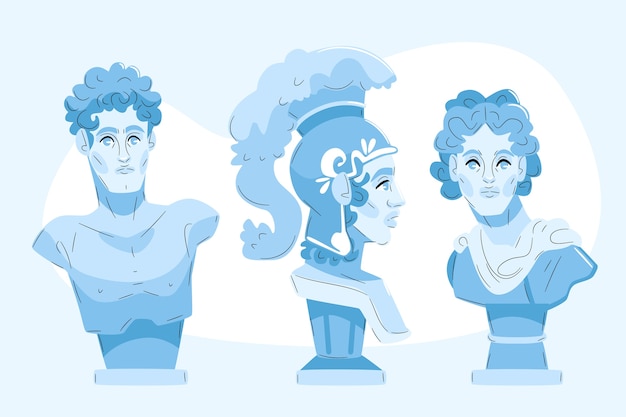Discovering Greece – Fascinating Fun Facts

Greece is known as the birthplace of democracy.
The Greek alphabet has been used for over 2,500 years.
Greece has more archaeological museums than any other country in the world.
Greek cuisine is known for its use of fresh and flavorful ingredients, such as olive oil, feta cheese, and tzatziki.
The Olympic Games originated in ancient Greece and were held in Olympia for over 1,000 years.
Greece has over 6,000 islands, but only 227 of them are inhabited.
The Acropolis in Athens is home to the famous Parthenon, a temple dedicated to the goddess Athena.
Greek is one of the oldest recorded living languages in the world.
Mount Olympus, the highest mountain in Greece, was believed to be the home of the gods in ancient Greek mythology.
The Temple of Apollo at Delphi was considered the center of the world in ancient times.
The Greek flag consists of nine equal horizontal stripes of blue and white.
Greece has the longest coastline in Europe, stretching over 13,000 kilometers.
Greek philosopher Aristotle was the teacher of Alexander the Great.
Greece is famous for its vibrant and lively traditional dances, such as the Zorba.
Greeks traditionally celebrate Easter with a midnight church service followed by a festive meal.
The ancient Greek city of Sparta was known for its military strength and discipline.
Greek mythology includes fascinating stories of gods, goddesses, heroes, and mythical creatures like Medusa and the Minotaur.
Discovering Greece – Fascinating Fun Facts part 2
Greece is home to the world’s largest Orthodox Christian monastery, Mount Athos.
The game of chess was invented by a Greek engineer named Philo of Byzantium.
Greece is one of the sunniest countries in the world, with an average of over 250 sunny days per year.
The city of Athens is named after the goddess Athena, who won a competition against Poseidon to become the city’s patron deity.
Greek coffee is traditionally brewed unfiltered and is known for its strong flavor.
The Greek island of Santorini is famous for its stunning sunsets and white-washed buildings with blue domes.
Greek tragedy and comedy were influential forms of theater in ancient Greece and are still studied and performed today.
The Delphic Games, a precursor to the Olympic Games, were held in Delphi to honor Apollo.
Greece was part of the Byzantine Empire, which was the Eastern Roman Empire, for over a thousand years.
The Greek mythological figure Hercules is known for his incredible strength and performed twelve labors as punishment for his actions.
Greece has a rich tradition of storytelling and oral literature, with epic poems like the Iliad and the Odyssey being passed down through generations.
The Greek island of Crete is home to the Palace of Knossos, which is believed to be the mythical labyrinth of the Minotaur.
The ancient city of Corinth was famous for its shipbuilding industry and was a major trading hub.
Greece is known for its thermal springs, which are natural hot water sources believed to have healing properties.
The Greeks introduced the concept of the democratic government to the modern world.
Greek philosophers like Socrates, Plato, and Aristotle made significant contributions to the fields of philosophy, science, and mathematics.
The ancient Greek city-state of Athens was the birthplace of many famous poets, playwrights, and philosophers.
The Greek island of Mykonos is known for its vibrant nightlife and picturesque windmills.
The Ancient Olympic Games were held only by Greek men and no other women.
The Greek island of Rhodes is home to one of the Seven Wonders of the Ancient World, the Colossus of Rhodes.
In Greece, it is tradition to celebrate a person’s name day instead of their birthday.
Greek architecture is characterized by its use of marble, columns, and elaborate decorative elements.
The Greeks invented the concept of theater and built impressive amphitheaters and theaters, like the Theater of Epidaurus.
Greece has a Mediterranean climate with mild, wet winters and hot, dry summers.
The Greek philosopher and mathematician Pythagoras is famous for his theorem, which is still taught in schools today.
Greek women have been known to wear a headscarf called a foustanela as a traditional accessory.
Greek weddings often feature traditional dances, such as the Money Dance where guests pin money onto the couple’s clothing while dancing.
Greece is home to stunning natural landmarks, such as the Meteora monasteries, perched on top of towering rock formations.

